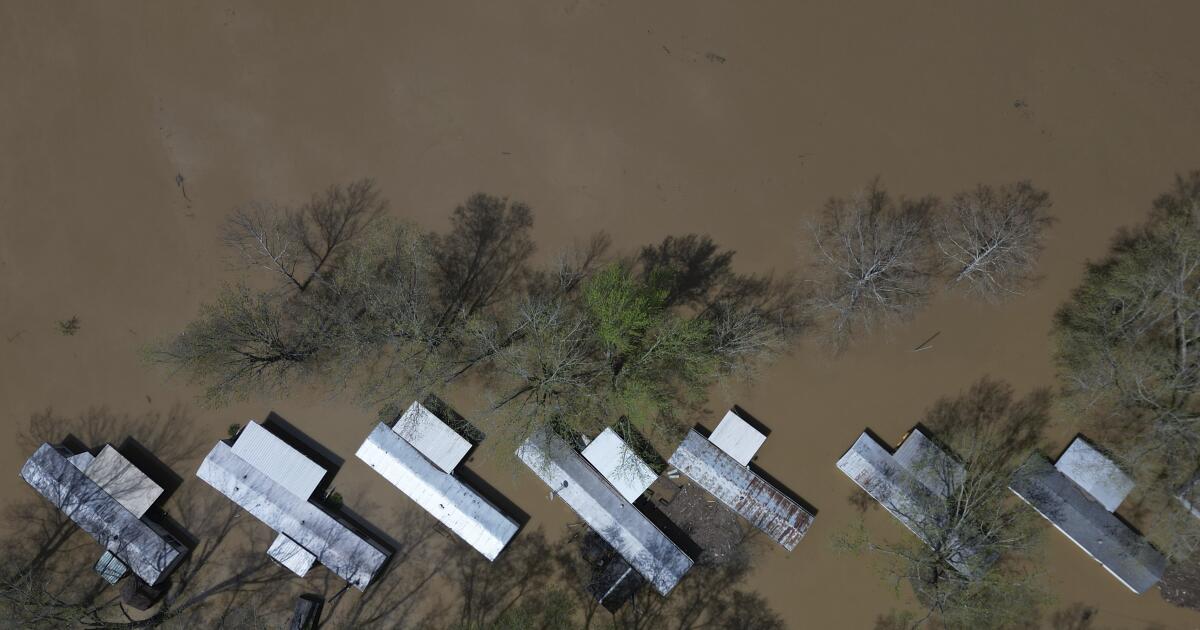Now Reading: As climate hazards worsen, Trump moves to weaken FEMA and shift disaster response onto states
-
01
As climate hazards worsen, Trump moves to weaken FEMA and shift disaster response onto states
As climate hazards worsen, Trump moves to weaken FEMA and shift disaster response onto states

The recent termination of the head of the Federal Emergency Management Agency is just the latest setback for the top disaster-response agency in the country. The Trump administration has been cutting spending and restructuring the federal government, causing ongoing layoffs, budget cuts, grant cancellations, and leadership changes at FEMA. With the firing of acting director Cameron Hamilton on May 8, officials warn that the agency may run out of funds by July, just in time for the peak of extreme weather events during the “danger season.”
The turmoil at FEMA is expected to leave millions of Americans vulnerable as climate-change-fueled disasters worsen. The Trump administration aims to shift disaster response responsibilities away from the federal government to the states. Despite California and other states grappling with more frequent and destructive environmental disasters due to human-caused climate change, the administration has called for shrinking or eliminating FEMA, citing overspending and political bias.
The move to dissolve FEMA would burden states with disaster response responsibilities beyond their capacity, as disasters like wildfires, tornadoes, hurricanes, and floods become more intense. While FEMA officials emphasize strengthening partnerships with state and local governments, they also plan to delegate more responsibilities away from the federal level. Experts suggest that a cooperative effort is needed to maintain the federal disaster-response infrastructure while enhancing state preparedness and response capabilities.
The decision to fire Hamilton amid approaching hurricane season has raised concerns about the administration’s approach to emergency response. FEMA’s challenges are not solely due to President Trump, as the agency faces criticism for mismanagement and inadequate responses to disasters under the Biden administration. Lawmakers have been advocating for FEMA reform since Hurricane Katrina in 2005, as the agency struggles to manage an increasing number of disasters each year.
As the administration scales back FEMA and other climate programs, concerns about the impact on disaster-affected individuals and states have grown. Denial of disaster aid requests following natural disasters in various states has left many questioning the government’s commitment to disaster recovery efforts. The move to shift recovery responsibilities onto states and individuals has been criticized as it may exacerbate the challenges faced by disaster-affected communities.
In the face of mounting disasters and the administration’s efforts to downplay the impacts of climate change, experts stress the importance of federal support in disaster response and recovery. The unraveling of the federal disaster safety net could have far-reaching consequences, affecting individuals and communities nationwide. The future of FEMA remains uncertain as the agency navigates ongoing challenges in disaster response and funding allocation.






